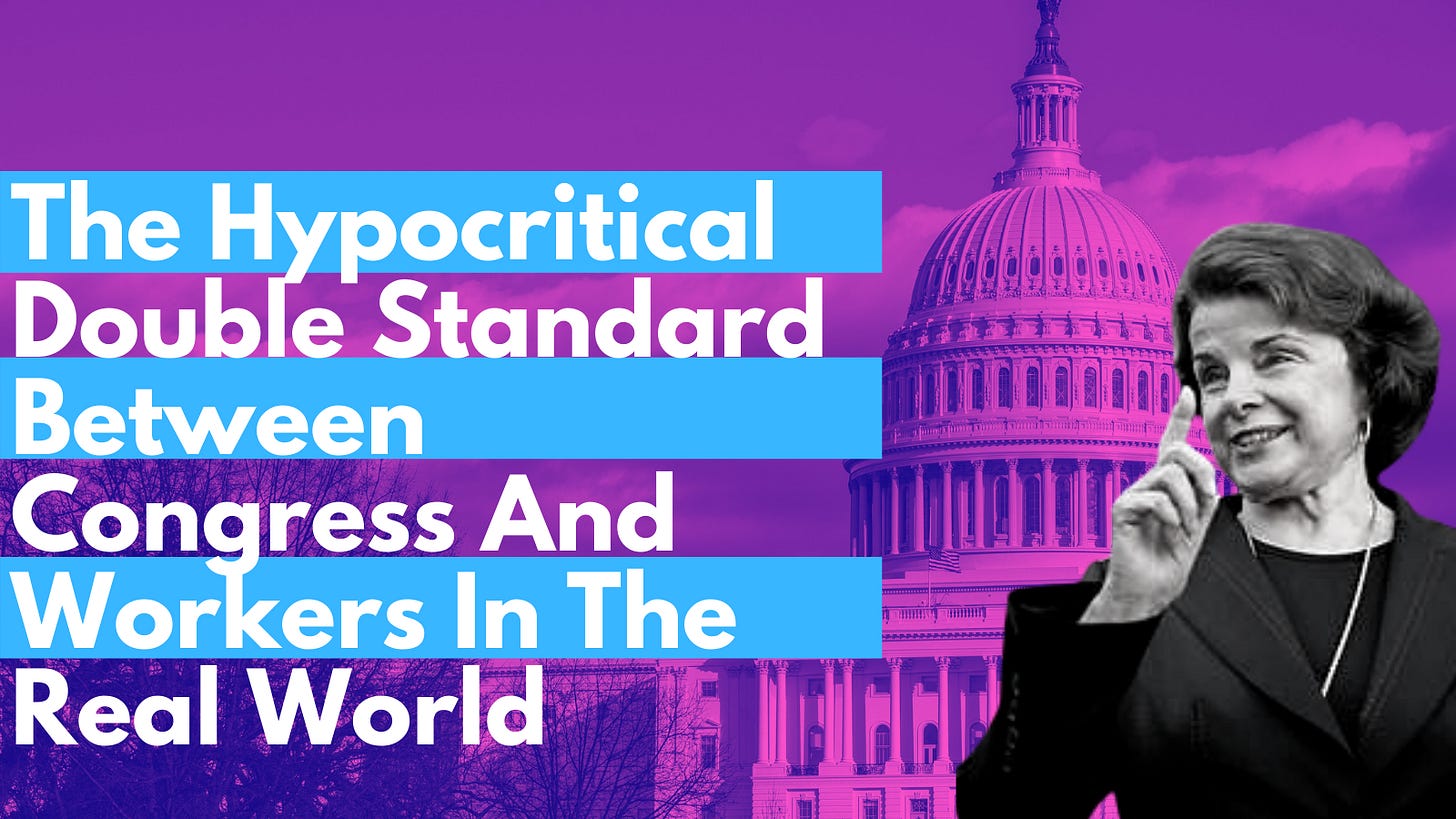The Hypocritical Double Standard Between Congress And Workers In The Real World
It’s interesting how in the real work world, there’s rampant ageism, but this doesn’t inhibit the livelihood of career politicians. During the pandemic, older workers—oftentimes, due to their salary and job title levels—are overlooked for jobs. Many have retired early, as they weren’t able to find suitable jobs.
Meanwhile, it’s now become common for a senator or federal employee to be in their 70s or 80s. The same octogenarians that the taxpayers are financially supporting aren’t the least bit interested in the discrimination that’s impacting older people in the workplace.
In the United States, the average retirement age is about 65 years old. When it comes to the federal government, lawmakers keep on going. We’ve all noticed that some—to put it politely—have passed their prime and it is uncomfortably obvious. They’re not leaving, though. It’s because they get lucrative pay, benefits and hold power. Members of Congress currently collect a base salary of $174,000, which can be higher for members of congressional leadership.
Dr. Anthony Fauci, Senator Dianne Feinstein (D-Calif), Rep. Don Young (R-Alaska) and many others have continued to work past 80. Fauci, 80, leads the National Institute of Allergy and Infectious Diseases and earned more than the president in 2019 with a salary of $417,608.
Feinstein has been in the Senate since 1993. She is among the wealthiest members of Congress with a net worth of more than $50 million, according to the Los Angeles Times.
Senator Chuck Grassley (R-Iowa) passed the title of president pro tempore to Senator Patrick Leahy (D-Vt.) this year. Both men have been in the Senate for decades — Grassley, 87, since 1981, and Leahy, 80, since 1975.
When an employee is unhappy with their job or just desires a better, more well-paying opportunity with growth potential, they’ll decide to engage in a job search. This entails a clandestine mission, in which they must be careful not to use work emails, make cryptic phone calls, run into conference rooms to speak with recruiters and sneak out of the office to interview—deathly afraid of getting caught.
Politicians are the only professionals who can hold an important job, such as being a senator or governor, and openly proclaim that they’re seeking a new role. This translates into, “I am so done with my current job and now I want an even bigger one!” Not only are they free to say this (which you would be fired if you announced your job search in a press conference to your office), they literally stop doing their current job to hit the campaign trail.
When you interview for a new job, you have to be transparent because they’ll soon see what you are—or aren’t—capable of doing. If you overpromise that you can do something and it’s later found out that you embellished or outright lied about your background, experience or relevant skills, there is a good chance that you’ll be immediately let go. When a politician lies, we collectively shrug our shoulders and say, “Well, that’s what they all do. What are you going to do? That’s life!” There is no real accountability to hold politicians to their word.
Our insurance costs are ridiculously high and vacation time too short. Our elected leaders have gold-plated insurance policies, lush retirement plans, guaranteed jobs for certain term limits, unlimited vacation time, free gym memberships, handsome pay and small fortunes to pay staffers that do their bidding.
If you receive a hot stock tip from a family friend, you run the risk of being sent to jail for insider trading. When a politician, in the course of their dealings, finds out about a new law or some big change within an industry, they could trade on the information much more freely without fear of retribution.
It’s public knowledge that politicians accept financial contributions from companies and later take actions in line with their requests. If a corporate executive receives money from another business or individual and acts in accordance with their directives, it’s considered a crime and the person could go to jail.
If we want to visit a beautiful country, the money comes out of our own pockets. When a politician wants to visit the same exotic destination, it also comes out of our pockets—in the form of taxes. It is common for them to go to wonderful locations on fact-finding, learning expeditions and be photographed on a sunny beach where it doesn’t look like much work is getting done.
Upon leaving office, politicians get lucrative book deals, speaking engagements, seats on the board of directors at major corporations and are included in deals with private equity and venture capital companies. It’s not unusual for a former president of the U.S. to become incredibly wealthy shortly after leaving office. When you leave your job, you are in dire need of another.



